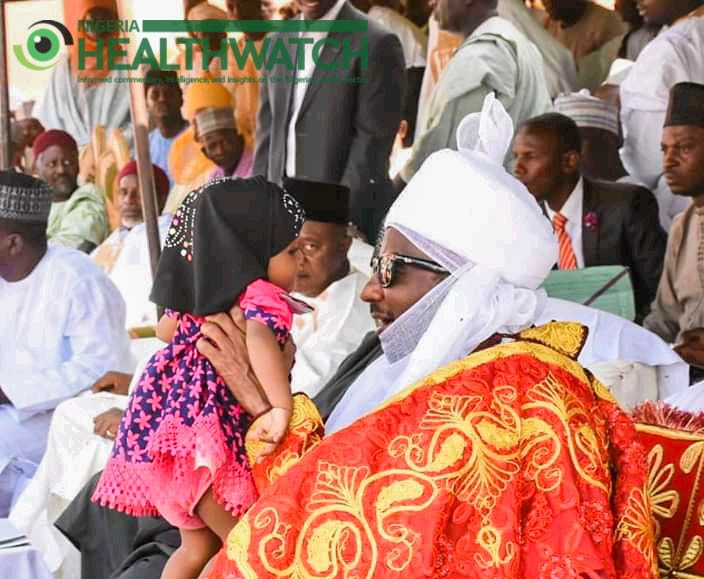Just five years ago, Kano State was arguably the epicenter of Nigeria’s polio virus epidemic, accounting for over 80% of total cases in the country. Various socio-cultural factors accounted for the state’s huge burden at the time, from ignorance and misconceptions about the polio vaccine, to the state’s high population and finally its strategic location as a center of commercial activities in the West African sub-region — hence the continued influx of people into the metropolis.
A major setback in the efforts to eradicate polio from Kano came about in 2003, when then-Governor Ibrahim Shekarau banned polio vaccines on the assertion that local scientists had discovered the vaccines lead to infertility, particularly among girls. Ten years later the Boko Haram insurgency did its own damage, when 11 polio vaccinators were shot dead in the line of duty in Kano metropolis by gunmen suspected to be members of the Boko Haram sect.
Yet, Kano had since the aftermath of the dastardly incident implemented various strategic and innovative interventions which has seen the state transformed from being the most polio endemic state in Nigeria to one with 92% coverage — according to the LOT Quality Assessment Survey (LQAs) results for the first quarter of 2019.
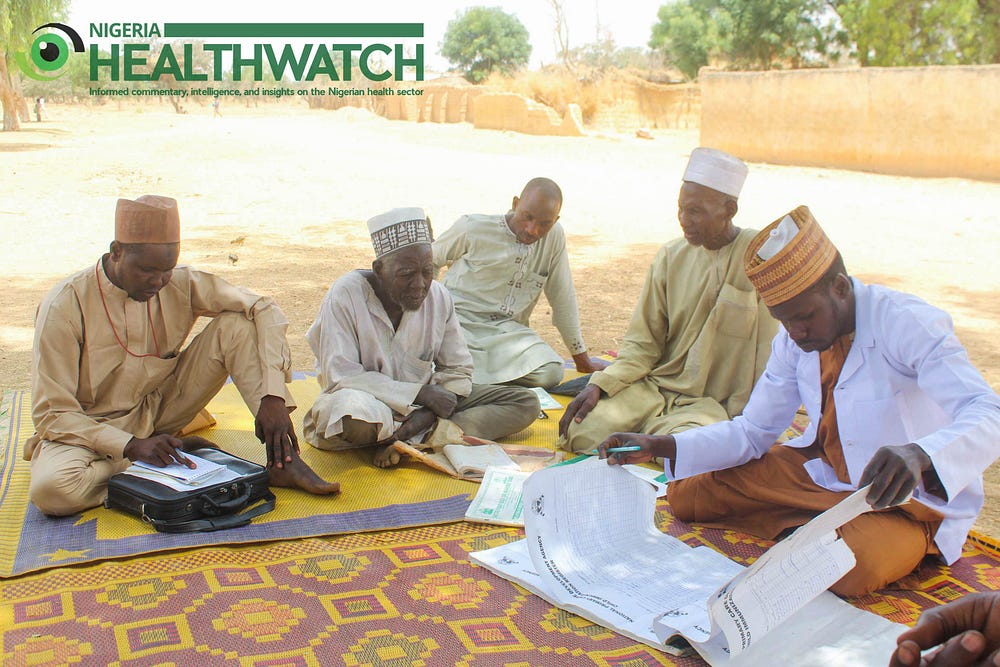
Photo source: dRPC
How has the state been able to make such dramatic progress in the past five years?
1. The establishment of an effective incident management system
Established in 2013, the Kano Emergency Operations Centre (EOC) has become a major hub for joint programming, implementation and evaluation of the Polio Eradication Initiative (PEI) in Kano State. Set up with the support of development partners working in the area of polio eradication, the Kano EOC is today the nucleus for the coordination of Kano’s strategic and innovative interventions that have seen the state go five years without a case of poliovirus disease.
Such innovations include the introduction of a Vaccine Direct Delivery (VDD) System, which ensures easier direct-to-facility delivery of vaccines, for round-the-clock availability of vaccines at PHCs. The state government established six satellite stores across the state and re-designed the vaccine distribution system by engaging private vendors to deliver vaccines down to PHCs. They also installed Solar Direct Drive (SDD) refrigerators in 97% of focal PHCs in each of Kano state’s 484 political wards, to ensure vaccines delivered under the VDD system are stored under the right temperatures.
Other innovations include the introduction of temporary clinics, known as health camps, at persistently non-compliant communities during Supplementary Immunization Activities (SIAs); the health camps are aimed at resolving non-polio related health challenges such as malaria — as incentives to community members to allow their children receive the vaccination.
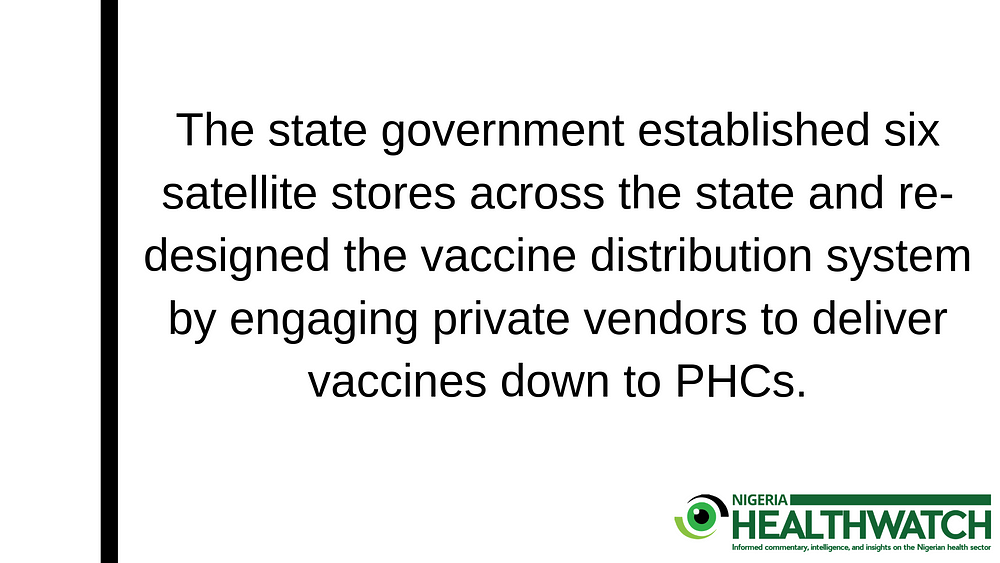
2. A robust cold chain infrastructure and logistics system
Until the declaration of poliovirus as an incident and the subsequent establishment of an incident management system in Kano, the state’s cold chain system was virtually “obsolete and non-existent”, according to Dr Imam Wada Bello, State Epidemiologist and the Incident Manager of the Kano EOC. The restructuring of the cold chain system became possible due to a tripartite agreement between the Kano State government, the Bill & Melinda Gates Foundation and the Dangote Foundation focused on strengthening Routine Immunisation (RI) in Kano state, Bello said, adding that this was important because, “You have to maintain the potency of the vaccines from the manufacturer up to when the last drop is administered to a child. The temperature in Kano is around 42 degrees Celsius and the vaccine must be kept under between +2 degrees Celsius and + 8 degree Celsius”.
Signed in November 2012, the tripartite agreement proved a masterstroke in Kano’s journey towards polio eradication. The agreement supported interventions across core RI thematic areas such as governance and service delivery, vaccine supply chain, and supportive supervision. The agreement also supported data management as well as community engagement and social mobilization. It also gave birth to the innovative and groundbreaking Vaccine Direct Delivery (VDD) system, which has become an international best practice for delivery of vaccines, as well as the introduction of the Solar Direct Drive (SDD) refrigerators.
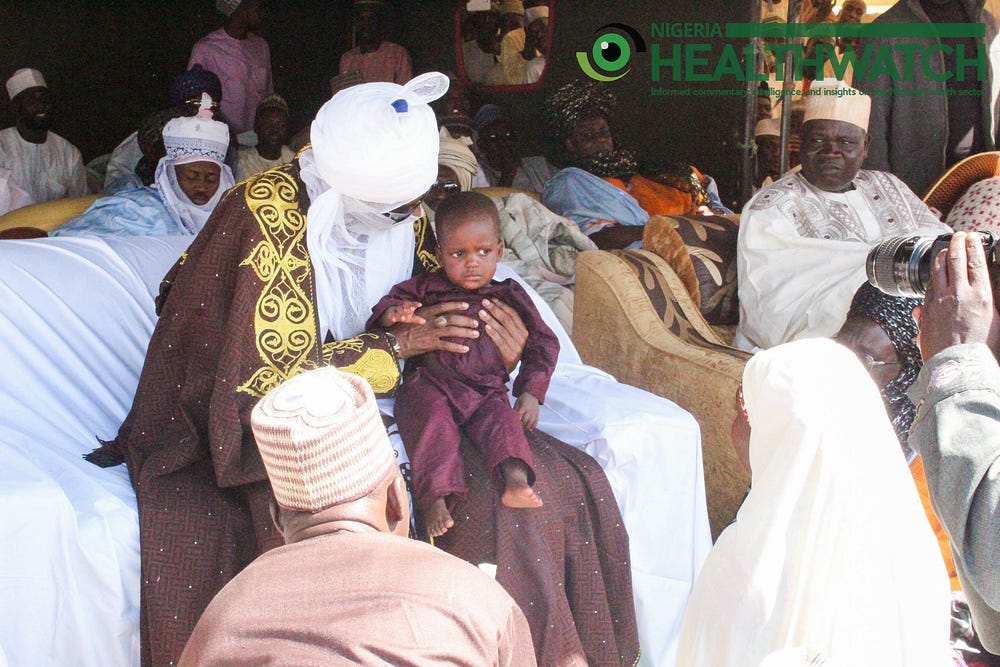
3. Effective community engagement through traditional & religious institutions
Recognising the strategic and influential role traditional and religious institutions play in influencing people’s attitude and behaviors including the acceptance of new government policies, the state collaborated with religious and traditional leaders in a campaign to change long-held misconceptions about poliovirus disease and immunisation.
The collaboration is spearheaded by the Emir of Kano Muhammadu Sanusi II, a staunch advocate of child health. Village heads across the state register all newborns in their communities and conduct joint monthly data reconciliation meetings with community health workers. This is aimed at tracking children who have not accessed immunisation services.
After every meeting, Voluntary Community Mobilisers (VCMs) conduct house-to-house verification to track those children and ensure they are immunised. “In Kano, you will find village heads accompanying a mother to a healthcare facility to get her child immunised and also a district head accompanying vaccination teams to resolve issues of non-compliance,” saidDr Kabiru Ibrahim Getso, Kano State former Commissioner of Health.
4. High-level political support and supervision
Another game changer in Kano’s effort to eliminate polio was the implementation of high-level supportive supervision led by the State’s Deputy Governor Dr. Nasiru Gawuna, who also chairs the Kano State Task Force on Immunisation and Polio Eradication. As chair of the task-force, the deputy governor works closely with the EOC in monitoring and coordination of vaccination campaigns especially during the quarterly Supplementary Immunization Activities (SIAs) which last for a whole week. During the SIAs, the State Governor Dr. Abdullahi Umary Ganduje himself leads one of the four SIA teams while the Deputy Governor not only leads another team but also chairs the final review meeting at the end of the exercise. Dr Getso believes the high involvement in immunisation by the two state executives is integral to the success the state has recorded in its polio eradication drive, and is a good model that other states should emulate.
5. Integrated Disease Surveillance and Response (IDSR)
Kano has established various proactive strategies for effective surveillance against poliomyelitis including continuous surveillance for Acute Flaccid Paralysis (AFP) to ensure timely detection. When suspected cases of polio are detected through the state’s network of field volunteers and community informants, the government responds immediately. “Once a suspected case is investigated, we take a stool sample and send it to Ibadan for testing; everything has to be done within 24 hours. This is what helps us break the transmission of Wild Polio Virus despite our long stretch of borders with other states,” Dr Bello said.
A case of Circulating Vaccine-Derived Polio Virus type 2 (CVDPV2) was discovered in the sewage around Darmanawa area of Kano metropolis in May 2019, and this was linked to poor environmental sanitation. Although not a case of Wild Polio Virus, CVDPV2 poses great danger to unvaccinated children and the incidence highlights the need for the state and local government councils to engage in a campaign to boost sanitation across homes and neighborhoods. The state government has done tremendously well towards eradicating polio from Kano; local governments need to also show the same level of commitment especially in areas of environmental sanitation and taking part in immunisation coordination.
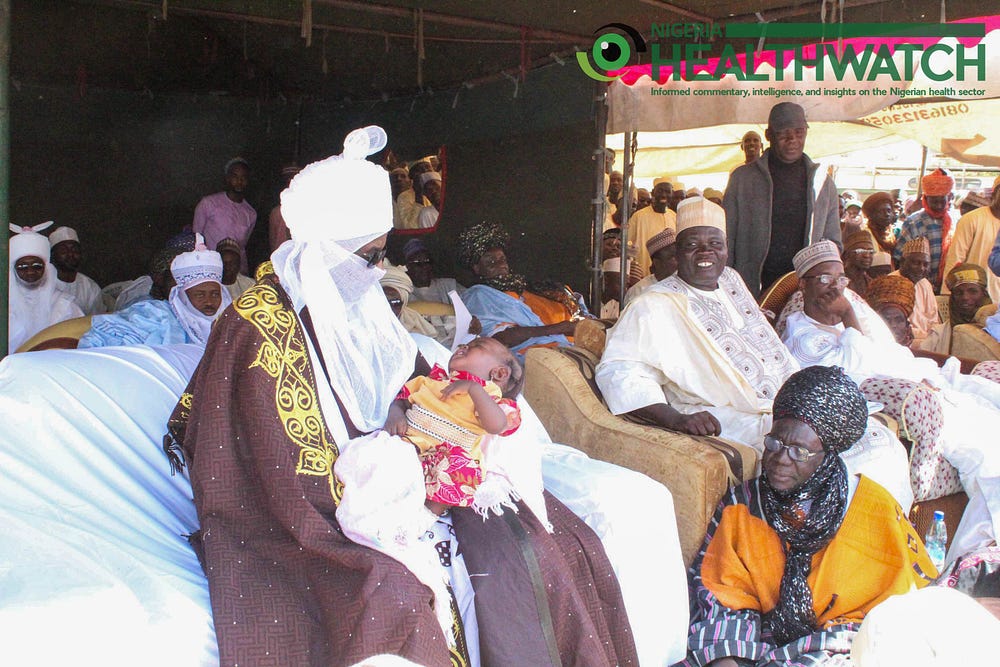
The successes recorded by Kano in polio eradication were achieved under the oversight and technical coordination of the EOC, but also with the active support of development partners working Kano such as the World Health Organisation (WHO), UNICEF, the CORE Group, Bill & Melinda Gates Foundation, SOLINA Group, Clinton Health Access Initiative (CHAI) and e-Health Africa (EHA).
While the successes point to a combination of factors, one overarching factor that has made this sustainable is the unwavering political commitment of the state government in the area of immunisation. Kano State has completely taken over funding of immunisation since the expiration of the tripartite agreement with the Bill & Melinda Gates Foundation and Dangote Foundation in 2016. This series of government-led and community-driven joint interventions being led by the deputy governor — with the active support of the Emir of Kano and his district and village heads as well as religious leaders and development partners — has helped to change negative perceptions about immunisation. It has also improved information sharing, programming, implementation and surveillance of immunisation campaigns in the state. It has been a long journey with many challenges along the way, however the active collaboration of all stakeholders in Kano State and across Nigeria has put the country on track to being declared polio-free by September 2019.
With over 80% of Nigeria’s polio burden (in 2014), Kano State used to be the epicenter of the Wild Polio Virus (WPV) disease in Nigeria. Various sociocultural factors accounted for Kano’s then huge burden: ignorance and misconceptions about polio vaccine, high population and Kano’s strategic location as a center of commercial activities in the West African sub-region — hence the continued influx of people into the metropolis. These factors combined to make Kano of those days both inaccessible to polio vaccinators and vulnerable to the spread of the circulating virus.
Then, there was deep-rooted suspicion by parents who either hid their infant children whenever the vaccinators were around or bluntly refused to allow them vaccinated. Yet, the major setback in the efforts to eradicate polio from Kano came about in 2003, when the then Governor Ibrahim Shekarau administration banned polio vaccines on the assertion that local scientists had discovered the vaccines were causing infertility, particularly among girls. In 2013, eleven polio vaccinators were shot dead in the line of duty in Kano metropolis, by gunmen who rode in tricycles and were suspected to be members of Boko Haram. These major setbacks were crippling drawbacks in the battle to eradicate WPV not only in Nigeria but Africa as whole.
In a major twist, Kano had since the aftermath of the killing of the polio vaccinators in 2013 began to evolve strategic and innovative interventions which had seen the state transformed itself from being the most polio endemic state in Nigeria (with over 80% of the country’s polio burden) to one with 92% coverage — according to the survey results for quarter one of 2019. For now close to five years (58 months to be specific) Kano has not recorded a single case of WPV. This is thanks to many innovative strategies, courtesy of an effective collaboration between the trio of the Kano state government, development partners and the Kano Emirate Council.
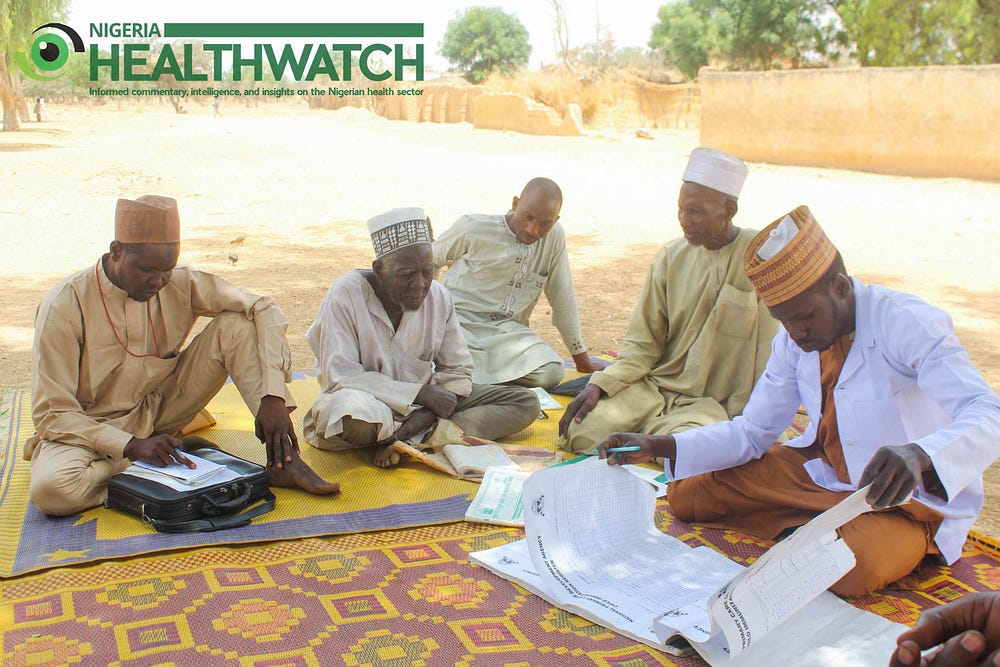
Photo source: dRPC
Establishment of an effective incident management system
Established in 2013, the Kano Emergency Operations Centre (EOC) has since then become the major hub for joint programming, implementation and evaluation of the Polio Eradication Initiative (PEI) in Kano State. Set up with the support of development partners working in the area of polio eradication, the Kano EOC is today the nucleus for the coordination of Kano’s strategic and innovative interventions that have seen the state rose from one with mere 39% coverage for immunisation in quarter four of 2017, to one with 92% coverage in the first quarter of 2019, according to the Lot Quality Assessment Survey (LQAs).
Under the leadership of a government appointed Incident Manager (IM), the EOC offers a flawless platform for effective collaboration between government agencies and development partners which has fostered improved training and reorientation for the state vaccination workforce, use of data for action as well as enforcement of accountability measures. Amongst others, this strategic partnership with partners has seen Kano introduced many innovative strategies for increasing awareness and improving demand and uptake for polio immunisation in the last five years.
Such innovations include introduction of a Vaccine Direct Delivery (VDD) System (which has become an international best practice for delivery of vaccines down to community level) as well as installation of Solar Direct Drive (SDD) refrigerators in 97% of focal PHCs in each of Kano State’s 484 political wards. Other innovations include introduction of temporary clinics (health camps) at persistently non-compliant communities during Supplementary Immunisation Activities (SIAs); the health camps are aimed at resolving non-polio related health challenges such as malaria — as incentive to community members to allow their children receive vaccination. Other incentives provided to women and children at such camps are groceries such as milk, detergents and sweets.
There is also the Large Hospital Strategy which essentially targets major hospitals in the state where women and under five children might be visiting during the SIAs, so that such children will be also be covered. This strategy came about after the realization that some children missed being immunised during SIAs because they are either at the large hospitals accompanying their caregivers or to receive care themselves. Again, there is the End Game Strategy which entails the line-listing of missed children in non-complaint households and communities with recurrent block rejections of vaccination during SIAs. After the SIAs, a particular LGA’s district head, health educator and representative of United Nations Children’s Fund (UNICEF) will go back to ensure the missed children are immunised.
The huge successes recorded by Kano in the area of polio eradication was achieved under the oversight and technical coordination of the EOC — but also with the active and inestimable support of development partners working Kano. And the major partner in this stride is the World Health Organisation (WHO) which supports surveillance campaigns, mop-up operations, Routine Immunisation (RI) and the SIAs. Whereas UNICEF supports community and social mobilization while the CORE Group supports service delivery; the trio of Bill and Melinda Gates Foundation (BMGF), SOLINA Group and the Clinton Health Access Initiative (CHAI) provide logistics and e-Health Africa’s role is that of facility managers for the EOC.
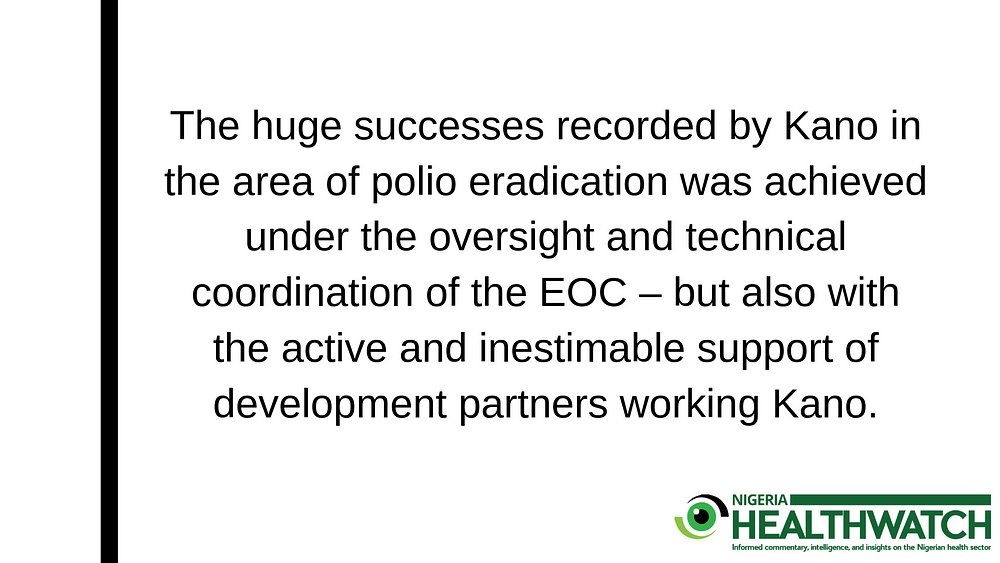
Robust cold chain infrastructure and logistics system
Until the declaration of polio virus as an incident and the subsequent establishment of an incident management system in Kano, the state’s cold chain system was virtually “obsolete and non-existent”, according to Dr Imam Wada Bello, the Incident Manager of the Kano EOC cum state epidemiologist. He said the revamping of the cold chain system became possible thanks to a tripartite agreement between the Kano State government, BMGF and the Dangote Foundation, focused on strengthening RI in Kano State. “You have to maintain the potency of the vaccines from the manufacturer up to when the last drop is administered to a child. Imagine now the temperature is around 42 degree Celsius and the vaccine must be kept under between +2 degrees Celsius and + 8 degree Celsius; you freeze it at -25 degrees Celsius,” said Dr Bello.
Signed in November 2012, the tripartite agreement proved a masterstroke in Kano’s journey towards polio eradication. The agreement supported interventions across core RI thematic areas: governance; service delivery; vaccine supply chain; and supportive supervision. Other thematic areas supported by the agreement were data management and use; community engagement and social mobilization. It also gave birth to the innovative and groundbreaking Vaccine Direct Delivery (VDD) system, which has become an international best practice for delivery of vaccines, as well as the introduction of Solar Direct Drive (SDD) refrigerators across 97% of the focal Primary Healthcare Centers (PHCs) in each of Kano’s 484 political wards.
To facilitate easier direct-to-facility delivery of the vaccines and ensure round-the-clock availability, other than the central store in Kano city, the government established six satellite stores across the state; re-designed the vaccine distribution system by engaging a private vendor and deployed a weekly dashboard for tracking vaccine stock performance using Logistics Management Information System (LOMIS) software. Therefore, distribution begins from the central store in Kano to the respective satellite stores, for onward distribution to PHCs at community level. Courtesy of this robust system of vaccine delivery, Kano now enjoys a system which ensures “the right vaccines [are] in the right place, at the right time, in the right quantities, in the right condition.”
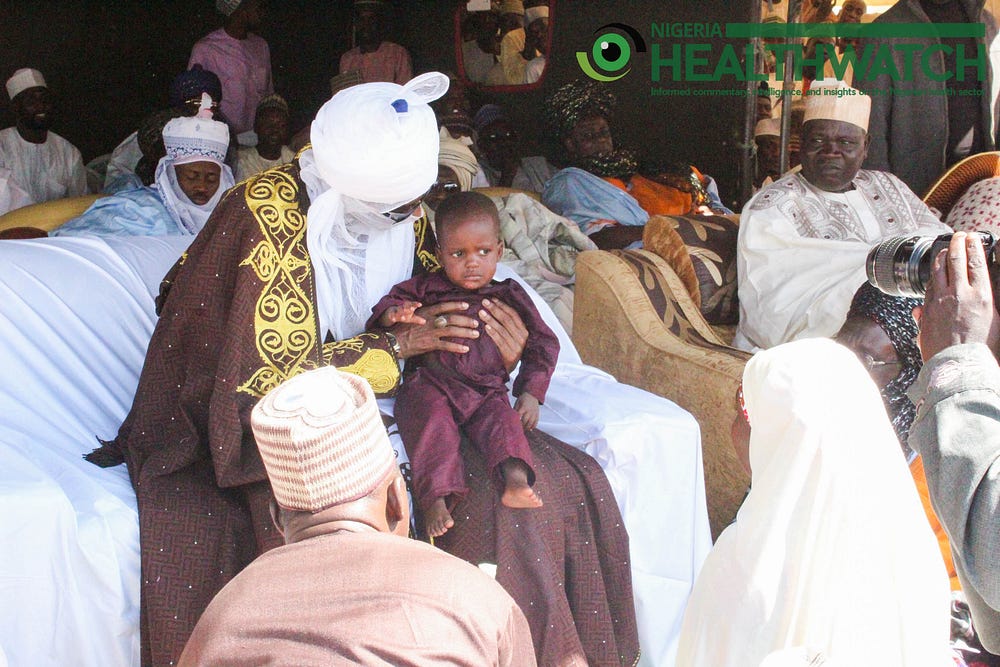
Effective community engagement through traditional, religious institutions
In recognition of the strategic and influential role traditional and religious institutions play in influencing people’s attitude and behaviors including acceptance of new government policies in Kano, the state sought for and got the active support of religious and traditional leaders in the campaign to change long-held misconceptions about polio various and immunisation. The state has been collaborating with the Kano Emirate Council to change negative cultural beliefs about immunisation; the Emir of Kano His Royal Highness Muhammadu Sanusi II is himself a staunch advocate of child health.
At state level, the collaboration with the Kano Emirate Council on polio eradication is spearheaded by the Kano Emirate Committee on Health and Human Development (KeCCOHD); at LGA level, the collaboration is led by the District Community Engagement Team (DICET) while at community level, it is through the Community Women and Child Survival System (COMWACSS), whose membership cuts across all members of the community including Traditional Birth Attendants (TBAs), imams, headmasters as well as commercial motorcyclists and bus drivers with the village head as its patron. The Emirate’s hierarchy ensures a truly bottom-top approach to tackling non-compliance by households and communities.
Village heads across the Kano now line-list all newborns in their communities and conduct joint monthly data reconciliation meetings with community health workers. This is aimed at tracking children who have defaulted from accessing RI services. At the end of such meetings, Voluntary Community Mobilisers (VCMs) will conduct a house-to-house verification exercise to track children who have defaulted and ensure they are immunised. “In Kano, you will find village heads accompanying a mother to a healthcare facility to get her child immunised and also a district head accompanying vaccination teams to resolve issues of non-compliance,” Dr Kabiru Ibrahim Getso, the Honorable Commissioner of Health told Nigeria Health Watch.
On many occasions, Emir Sanusi had personally led community sensitization and dialogue campaigns around the state. For example, in 2018, Damagam community in Dawakin Kudu LGA of Kano state rejected Routine Immunisation (RI) for their children, simply because of a political grudge they had against the governor. Emir Sanusi personally led Kano state government delegation of vaccinators and Islamic scholars to the community for a successful dialogue with community members on the enormity of the responsibility of ensuring their children had access to quality healthcare in Islam and why they shouldn’t allow their beef with the governor to stand in the way of their children’s access to quality healthcare. Before he left the community, the emir personally immunised not less than twenty children.
Other than the traditional institutions, Kano is also engaging the services of equally influential religious clerics in its polio eradication campaign. At state level, they engage the services of 39 such influential clerics who are also imams of leading Jumuat mosques in the metropolis; the government also engages the services of similar imams at LGA level. As well as delivering the strategic Friday sermons on the topic of non-compliance to polio vaccination, the clerics engage their followers on the issue at every opportunity. To ensure inclusivity, the state also engages the services of influential Christian clerics and community leaders in Christian dominated parts of Kano such as the Sabon Gari community, for the same purpose.
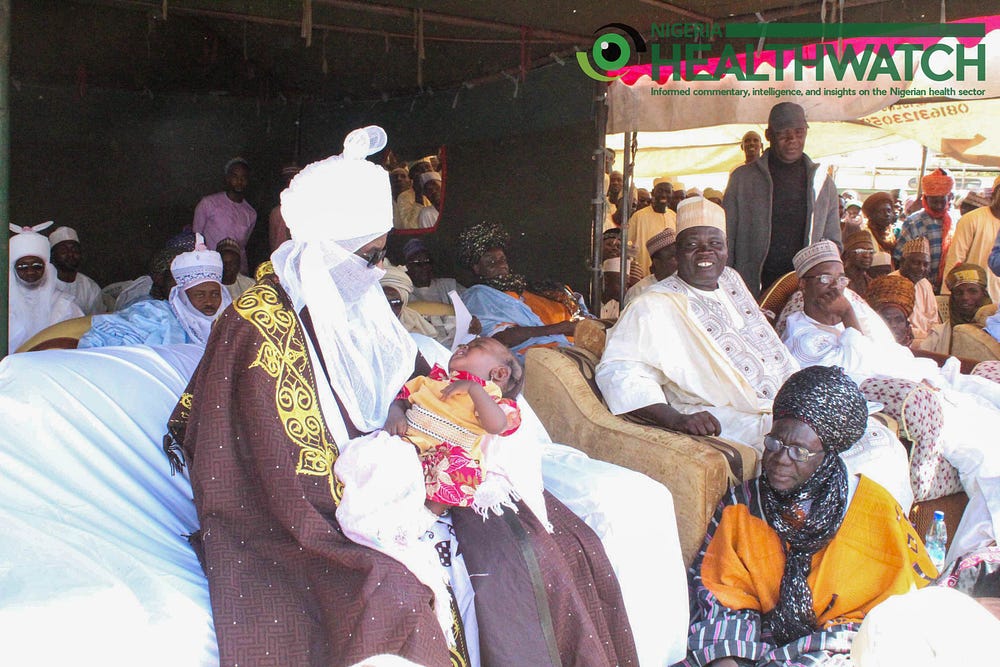
High Level Supportive Supervision
One of the major game changers in Kano’s effort to eliminate polio virus is the implementation of high-level supportive supervision led by the Deputy Governor of Kano state, who also chairs the Kano State Task Force on Immunisation and Polio Eradication. As chair of the task-force, the deputy governor works closely with the EOC in monitoring and coordination of vaccination campaigns especially during the quarterly Supplementary Immunisation Activities (SIAs) which last for a whole week. During the SIAs, all the four Kano SIA teams sets out for the field as early as 7am, at the end of which they all retire to the EOC for an evening review meeting of findings from that particular day.
During the SIAs, the Executive Governor of Kano State Dr Abdullahi Ganduje himself leads one of the four SIA teams while the deputy governor not only leads another team but also chairs the final evening review meeting. The commissioner of health leads the third team as well as chairing the evening review meetings — except the final evening review meeting. The last and fourth SIA team is led by either the commissioner of women affairs or that of environment. “I am not being boastful, but based on the report we are getting from monitors across the country; nowhere does a deputy governor participate in evening review meetings — except in Kano. Even the commissioner of health will not be around. This is to show the high level of commitment by the leaders of the state — which is integral to the success we have achieved,” said Dr Getso.
Integrated Disease Surveillance and Response (IDSR)
Also key to the huge success Kano has recorded in polio eradication in recent years is the establishment of various proactive strategies for effective surveillance against poliomyelitis including surveillance for Acute Flaccid Paralysis (AFP) to ensure timely detection. When cases of polio are detected through the state’s network of field volunteers and community informants, the government responds immediately. “Once a suspected case is investigated, we take stool sample and send it to Ibadan for testing; everything has to be done within 24 hours. This is what helps us break the transmission of WPV despite our long stretch of borders with other states,” said Dr Wada, head of the Kano EOC.
To be able to detect potential cases of polio and prevent outbreaks, Kano also introduced In-Between Rounds (IBR) immunisation campaigns targeting major entry and exit points in the state such as motor parks, transit and checkpoints. This is a proactive move aimed at addressing the influx of unidentified persons and children whose immunisation status is unknown and who might be harboring the polio virus. As a result of continued influx of Internally Displaced Persons (IDPs) from the Borno and Zamfara axes, Kano is now planning to establish permanent polio transit camps for the IDPs targeting Circulating Polio Virus (CPV). Moreover, Kano is also considering the training of security agents manning major entry points to enable them identify children with the symptoms of polio virus and administer the vaccine to them.
The enormous successes recorded in eradicating polio from Kano state are a result of a combination of many factors chief among them the unwavering political commitment of the government which has completely taken over funding of immunisation since the expiration of the tripartite agreement with BMGF and Dangote Foundation. This series of government-led and community-driven joint interventions being led by the deputy governor — with the active support of the Emir of Kano and his district and village heads as well as religious leaders and development partners — have greatly changed people’s negative perception about immunisation. It has also improved information sharing, programming, implementation and surveillance in the immunisation campaigns in the state.
However, it is worthy of note that a Circulating Polio Virus (CPV) was discovered in a sewage around Darmanawa area of Kano metropolis, last May, which was said to be linked to poor environmental sanitation. Although not a case of Wild Polio Virus (WPV), the incidence calls for more to be done by the state government and respective 44 local government areas. Although the state government has done tremendously well towards eradicating polio from Kano, the LGAs need to also show the same level of commitment; for example, it is still difficult getting the chairmen of LGAs to attend evening review meetings during SIAs.


